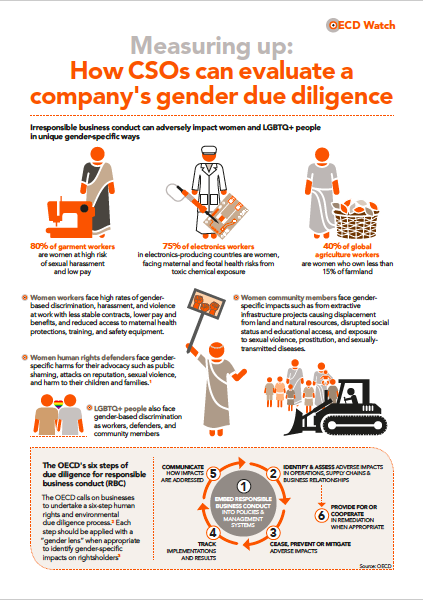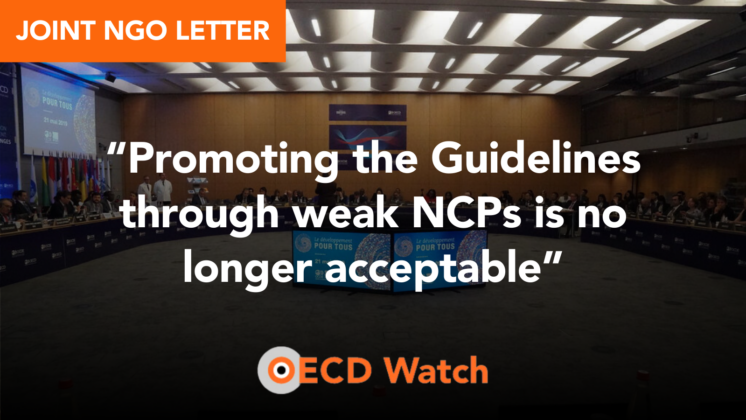Guide for CSOs on how to evaluate a company's gender due diligence
OECD Watch has published a guide – available in English, French, Spanish, and Portuguese below – explaining how civil society can evaluate a company’s gender due diligence. Irresponsible business conduct can adversely impact women and LGBTQ+ people in unique and gender-specific ways.
The OECD Guidelines for Multinational Enterprises call on businesses to prevent and address their impacts through undertaking human rights and environmental due diligence. The OECD’s Due Diligence Guidance for Responsible Business Conduct sets out a six-step due diligence process and urges companies to apply a gender perspective when appropriate.
With this new guide, OECD Watch provides civil society a list of questions they can use to assess if and how effectively companies are applying a gender lens at each step of the due diligence process.
The questions can be used in interviews and human rights assessments with impacted women and LGBTQ+ people, when preparing complaints to grievance mechanisms, during engagement with companies, and in advocacy with governments.
Women and LGBTQ+ people experience adverse business impacts differently, and often more seriously, than men. Women workers typically face high rates of gender-based discrimination, harassment, and violence at work with less stable contracts, lower pay and benefits, and reduced access to maternal health protections, training, and safety equipment. Women and girl community members face gender-specific impacts from extractive and infrastructure projects such as displacement from land and natural resources, disrupted social status and educational access, and exposure to prostitution and sexual violence. People of non-binary gender also suffer gender-linked discrimination in MNE value chains and, along with women, face different and increased harms when they act as human rights defenders. Businesses also rarely consider how their conduct may impact all people differently based on intersecting aspects of their identity (e.g. race, caste, age, disability, etc.).
read more less













